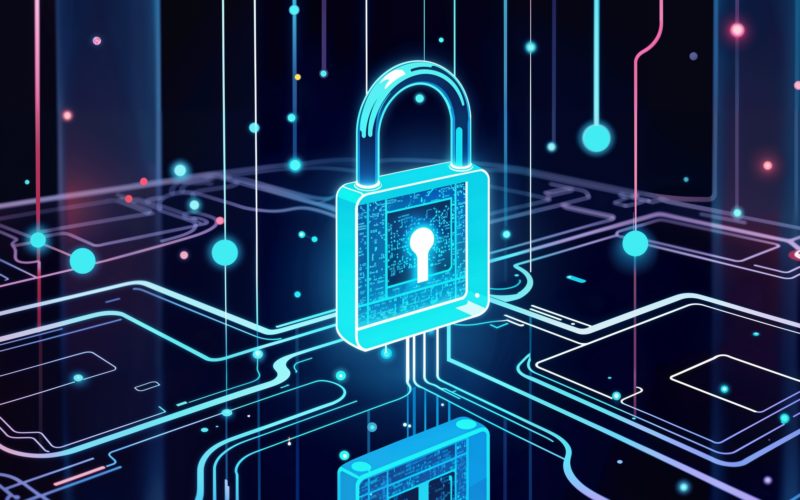With businesses relying more than ever on digital systems, the demand for cybersecurity professionals has skyrocketed. But amid the growing threats of cyberattacks, it’s an unfortunate reality that there aren’t enough cybersecurity experts to meet this need. Today, The World Economic Forum reports that 67% of organisations report a moderate-to-critical skills gap in cybersecurity, leaving many companies from all industries and sizes vulnerable to cyber criminals.
As threats continue to evolve, cybersecurity roles have become more complex and demanding. Professionals have reported that their jobs have been significantly tougher in the past few years, thanks to the rapid emergence of new technologies. Thankfully, understanding the reasons behind the cybersecurity skills gap and being aware of workforce development strategies will be key to solving this issue.
What’s Causing The Cybersecurity Skills Gap?
The shortage of cybersecurity talent isn’t caused by just one issue — it’s the result of overlapping factors that make it difficult for businesses to find and retain skilled professionals. The rapid evolution of technology, increasing complexity of cyber threats, high job demands, and barriers to entry in the field all play a role in widening the gap. Let’s explore the factors one by one:
Quick emergence of new technologies
With the rapid adoption of emerging technologies, cybersecurity threats — and the tools designed to combat them — are evolving at an unprecedented pace. Artificial intelligence (AI), cloud computing, and the Internet of Things (IoT) are just a few of the advancements that have introduced new security challenges requiring specialised expertise. Cybercriminals continuously develop sophisticated attack methods, exploiting vulnerabilities in these evolving systems.
The fast-moving nature of technology makes it difficult for cybersecurity professionals to stay up to date. Traditional education and certification programs often lag behind real-world developments, leaving many experts feeling underprepared for new threats. This knowledge gap makes it challenging for businesses to find professionals with the right skill sets to protect their digital assets effectively.
Cybersecurity Challenges: Attracting and Retaining Skilled Professionals
Rapidly increasing cybersecurity needs infrastructure, the demand for cybersecurity professionals has skyrocketed. Organisations that handle sensitive information, such as government agencies, financial institutions, and contact centres, face even greater security risks and require specialised cybersecurity talent to protect against breaches.
This surge in demand has created a fiercely competitive job market where companies struggle to attract and retain cybersecurity professionals. Skilled experts often receive multiple job offers, leading to high salary expectations and frequent job-hopping. Meanwhile, organisations that cannot afford top-tier cybersecurity talent risk leaving their systems vulnerable to attacks, further exacerbating the cybersecurity crisis.
Lack of distinct career paths
Unlike established professions like law, medicine, or engineering, cybersecurity does not have a universally recognised career roadmap. Aspiring professionals often struggle to figure out where to begin, which skills to develop, and what credentials employers value the most. While some enter the field through computer science degrees, others take alternative routes like boot camps, self-study, or on-the-job experience. However, the lack of a structured path makes it difficult for newcomers to navigate the industry.
Additionally, job descriptions for cybersecurity roles vary widely across organisations, with some requiring extensive hands-on experience and others prioritising advanced certifications. This inconsistency can discourage potential candidates who may be uncertain about what qualifications they need or how to gain real-world experience. Without clear guidance, many capable individuals hesitate to pursue cybersecurity careers, worsening the skills shortage.
Outdated and costly certifications
Certifications are essential in cybersecurity hiring, as they help validate an individual’s skills and expertise. However, many of these certifications are expensive, requiring significant financial investment and rigorous preparation. While courses like CISSP (Certified Information Systems Security Professional) or CEH (Certified Ethical Hacker) provide strong long-term value, the price tag they come with can easily discourage employers and professionals from upskilling.
For those looking for a more affordable yet comprehensive option, pursuing a diploma in cybersecurity can be a practical alternative, offering foundational knowledge and hands-on training without the high costs associated with traditional certifications.
Moreover, cybersecurity is a rapidly evolving field, with new threats and technologies emerging constantly. Yet, some certification programs struggle to keep pace with these changes. Professionals may find that their credentials become outdated quickly, forcing them to renew certifications or take additional courses just to remain competitive. This constant need for recertification can be both financially and mentally exhausting, discouraging professionals from staying in the field long-term.
High burnout rates in cybersecurity roles
Cybersecurity professionals operate in remarkably high-pressure environments with significant stakes. When a security breach occurs, the consequences can be devastating: major financial losses, damaged reputations, and serious legal implications. This reality places immense stress on security teams, who often work extended hours maintaining vigilance against evolving threats.
The demand for continuous vigilance, coupled with the pressure to stay ahead of cybercriminals, leads to high burnout rates. Many professionals struggle with work-life balance, and the difficulties of dealing with unrealistic expectations can take a toll on one’s mental health. As a result, a significant number of skilled cybersecurity experts leave the industry in search of less stressful roles.
This high turnover rate exacerbates the skills gap, as organisations must constantly hire and train new employees to replace those who leave. Without proper support systems — such as mental health resources, workload management, and team-based collaboration — companies risk losing their most valuable cybersecurity talent, further deepening the shortage.
The Role of Cybersecurity Education and Training for Employers: Benefits for Organisations and Their Staff
Education and continuous training remain the most effective solutions to the cybersecurity skills gap. In a field where threats grow more sophisticated daily, professionals require both current knowledge and practical experience to effectively protect organizations from potential attacks.
A strong commitment to learning benefits both organisations and individuals by ensuring cybersecurity teams remain equipped to tackle evolving threats. Here’s how continuous education can benefit organisations and staff.
Strengthened cyber resilience
Cybersecurity training is more than just employee development — it’s a critical investment in a company’s overall security. A well-trained team serves as the first line of defence against cyber threats, minimising the risk of breaches, financial losses, and reputational harm. By prioritising ongoing education, businesses can proactively identify and mitigate security vulnerabilities, ensuring compliance with industry regulations while reducing reliance on external consultants.
As cyber threats grow more sophisticated, organisations that neglect to upskill their teams risk falling behind and becoming prime targets. Investing in continuous training not only strengthens security but also builds in-house expertise, equipping companies with the knowledge needed to navigate an increasingly complex threat landscape.
Enhanced employee confidence and morale
Cybersecurity professionals work in high-pressure environments where quick, decisive actions are vital to preventing cyberattacks. Continuous training equips them with the critical thinking, problem-solving, and hands-on technical skills needed to stay ahead of evolving cyber threats. By keeping up-to-date with the latest security trends and defence strategies, they gain the confidence to identify and respond to threats in real time, ensuring a proactive approach to security.
Additionally, ongoing training provides professionals with a deeper understanding of emerging threats, such as AI-driven malware and cloud-based vulnerabilities. This knowledge empowers them to implement advanced security measures, which strengthens an organisation’s overall defence. As cybersecurity experts grow in skill and expertise, they are better equipped to protect their organisations from increasingly sophisticated attacks.
Career development and progression
For individuals aspiring to enter the cybersecurity field, gaining the right education and certifications can lead to lucrative career opportunities. Unlike traditional degree programs, which take years to complete, cybersecurity training programs, boot camps, and online courses provide faster, structured pathways to upskill and enter the workforce. These programs offer hands-on cybersecurity simulations, industry-recognized certifications like CompTIA Security+, CISSP, and CEH, and networking opportunities with industry leaders that can boost job prospects.
Specialised training providers such as Lumify Learn offer targeted courses that equip learners with practical, job-ready skills, preparing them for critical roles in the cybersecurity industry. By fostering continuous learning and skill development, both businesses and professionals can contribute to addressing the cybersecurity skills gap and ensuring a secure digital landscape.
Bridging The Cybersecurity Skills Gap: Proven Strategies for Workforce Development & Sustainability
Support staff through flexible work arrangements
The high-stress nature of cybersecurity roles makes burnout a common issue. Offering flexible work arrangements, such as remote work or adjustable hours, can greatly improve job satisfaction and reduce the likelihood of burnout. By giving professionals the autonomy to manage their work-life balance, businesses not only retain valuable employees but also create a more resilient cybersecurity team.
Allowing for flexibility in work schedules helps keep skilled workers in the industry longer. It fosters an environment where professionals feel supported, resulting in higher engagement and retention. In a competitive job market, offering these benefits can be a major factor in attracting and keeping top cybersecurity talent.
Build a strong in-house training program.
Companies should invest in training programs to upskill their existing employees. Relying solely on external hires can leave security gaps, but internal training helps ensure that your current team is well-equipped to tackle emerging threats. These programs enhance employee engagement and provide a clear career growth path, fostering loyalty and reducing turnover.
Training internally also reduces the dependency on expensive external consultants. As cybersecurity needs evolve, businesses that prioritise continuous education can stay ahead of potential risks. By developing a skilled, in-house team, companies not only address the skills gap but also strengthen their overall security posture.
Prioritise mentorship and knowledge-sharing opportunities
Effective mentorship develops the next generation of cybersecurity professionals. When organizations pair newer talent with experienced security experts, they accelerate learning and provide hands-on guidance through complex challenges. These mentoring relationships build a skilled workforce prepared for increasingly advanced responsibilities.
Nothing beats mentorship for growing new security talent. When you pair rookies with veterans, they learn faster and get real guidance through the cybersecurity maze. This kind of relationship doesn’t just build skills — it creates confident professionals ready to tackle bigger challenges.
By fostering knowledge-sharing practices, businesses also create a culture of continuous learning. Junior professionals gain valuable insights, while mentors themselves stay sharp by teaching and discussing new threats and techniques. This exchange of knowledge strengthens teams, builds confidence, and ensures that talent is nurtured within the organisation.
Covering costs for training and certifications
Supporting ongoing education is necessary for maintaining a competent cybersecurity team. By covering the costs of certifications and training, businesses can ensure that their staff stays up to date with the latest industry standards. These credentials validate expertise and allow employees to confidently respond to evolving threats.
Continuous learning is vital in the fast-paced cybersecurity field. As new technologies emerge and attack methods evolve, professionals must adapt quickly. By prioritising certifications and supporting a culture of learning, businesses enable their cybersecurity teams to remain competitive and equipped to handle the latest security challenges.
Shift to skill-based hiring
Shifting to skill-based hiring practices can significantly narrow the cybersecurity talent gap. Instead of focusing solely on formal degrees or years of experience, companies should focus on practical skills, certifications, and demonstrated competency. This approach opens doors to individuals who may not have followed a traditional educational path but possess the hands-on expertise needed to tackle cybersecurity challenges effectively.
By adopting this hiring model, businesses increase their talent pool and identify candidates who can directly contribute to security efforts. Skill-based hiring also promotes diversity in the field, as it allows non-traditional candidates to showcase their abilities and gain access to opportunities. This approach not only benefits the company but also strengthens the cybersecurity workforce as a whole.
Overcoming The Skills Gap Through Continuous Learning
The cybersecurity landscape is dynamic, with threats evolving incessantly. To keep pace, both organisations and professionals must commit to continuous learning. This commitment involves staying abreast of emerging technologies, threat vectors, and defence strategies.
Educational institutions and training providers have a significant part in this ecosystem. For example, Lumify Learn offers specialised online cybersecurity courses designed to equip learners with practical skills relevant to current industry demands. Such programs are instrumental in preparing the next generation of cybersecurity experts.
Addressing the cybersecurity skills gap has become essential for protecting our digital infrastructure. Organizations that understand the underlying causes of this talent shortage can implement effective strategies — continuous education, thoughtful work arrangements, and structured mentorship programs — to significantly strengthen their security postures. Collective efforts from industry leaders, educational institutions, and policymakers are essential to cultivate a robust cybersecurity workforce capable of meeting present and future challenges.












